Expectations low
for Obama-Xi
state visit
Washington (CNN)Presidents Barack Obama and Xi Jinping will trade platitudes and raise a glass to 40 years of U.S.-China ties at a state dinner on Friday night.
But protocol will not disguise the reality that the relationship between the world's sole superpower and the rising Asian giant is becoming ever more treacherous, with disagreements over Beijing's territorial claims in the South and East China Seas, charges of cyberhacking, military tensions, trade rows and human rights recriminations.
So it's not surprising that expectations are so low for the visit, which began when Obama hosted Xi for a private dinner Thursday and includes Oval Office talks and a press conference Friday.
The White House did reveal on the eve of the talks that China would unveil a new cap-and-trade program during the visit to cut greenhouse gas emissions, a victory for the White House which has long pushed Beijing to embrace green technology.
But the best that is expected for progress in other areas is a possible deal to open a dialogue on hacking, a promise by both sides not to launch cyberattacks on the other's critical infrastructure and an effort to frame a code of conduct for air and naval forces to avoid collisions that could spark a crisis.
No one, however, is expecting breakthroughs on the most difficult questions.
In fact, so acute is Washington's aggravation at China that there are early stirrings of a debate in the U.S. foreign policy community about whether it's time to rethink the whole relationship.
Since President Richard Nixon's opening to China in the 1970s, successive U.S. administrations have seen dialogue as the best way to avoid confrontation with a rising power and usher it into a rules-based economic and diplomatic system.
"We're at a point where there's debate about whether that premise was right," said Michael Green, once George W. Bush's top White House East Asia policy official. "But I think the consensus in both parties and among foreign policy experts is that it still is right."
Still, Green said, "The problem the Obama administration has had is that China is bigger, their problems are more complex."
Contentious issues
Just this week, Washington accused a Chinese fighter ace of making "dangerous" passes at a Navy plane over the South China Sea. The U.S. believes, meanwhile, that Beijing is building military bases on disputed reefs in the area, and there is growing alarm at a crackdown on human rights by a leader China's critics in the United States see as a tyrant.
The administration is also threatening sanctions over allegations that Chinese hackers stole reams of secret personnel information from U.S. government servers, while American businesses have long bemoaned their own cyber intrusions.
Many in Beijing, meanwhile, suspect Obama's "rebalancing" of U.S. power toward Asia and a vast pan-Pacific trade pact excluding China are no more than a bid to contain their civilization's rightful rise, despite the President's repeated denials.
Then there is domestic politics.
Neither Obama, with lame-duck status looming and with hostility to China visceral in U.S. politics, nor Xi, whose consolidation of power and reputation for economic competence is being tested by a stock market scare, have much leeway for compromise.
In a way, Xi's visit marks the beginning of an ending. The Obama administration's vexing struggle to manage relations with Beijing -- which has become more nationalistic and willing to project power in recent years -- is drawing to a close. And the Chinese may already be looking to the future.
"President Xi doesn't see a great deal of value in investing in the Obama administration at this point," said Christopher Johnson, a former CIA analyst now with the Center for Strategic and International Studies.
The way China is being portrayed as a villain in the 2016 election is narrowing Obama's room for maneuver and may force him to take a firmer line toward Beijing.
"There is more extreme and loose rhetoric this time around than ever before -- there is more fuel lying around for the stray spark to inflame something," said Nelson Dong, a U.S. lawyer and a former director of the National Committee on United States-China Relations.
Candidates slam China
While campaign fury about China often does not always translate into a new president altering policy, things could be different come January 2017.
"I think whether it's a Democrat or a Republican administration, it's probably going to be a little tougher," Johnson said.
One leading Republican candidate, Florida Sen. Marco Rubio, is accusing Obama of appeasing China, saying his attempt to be friendly to Xi failed. GOP front-runner Donald Trump, meanwhile, is promising he will bring U.S. jobs back from China if elected. And the Middle Kingdom's leaders have long been suspicious of the hawkish instincts of top Democrat Hillary Clinton, who established herself on the international stage with a tongue-lashing speech in Beijing in 1995.
Given the constraints on both Xi and Obama and the poor atmospherics, some critics have asked why the state visit is going ahead at all. Some GOP presidential candidates have even called for it to be canceled.
The answer is simple: Both sides know there is no choice. The relationship between the United States and China is "the most consequential in the world today," National Security Adviser Susan Rice said this week.
"We reject reductive reasoning and lazy rhetoric that says conflict between the U.S. and China is inevitable even as we've been tough with China where we disagree," said Rice. "This isn't a zero sum game."
Xi, speaking in Seattle on the first leg of his U.S. visit, agreed it was smart to try to keep a lid on tensions, saying if the U.S. and China "enter into conflict or confrontation, it would lead to disaster for both countries and the world at large."
Any U.S. move to cancel the talks would also risk backfiring, as it would be a severe embarrassment to the protocol-conscious Chinese; insulting Xi seems unlikely to make him more amenable to U.S. demands. And despite the complications, both sides do have a political interest in dialogue.
Common ground
There are many areas where China and the United States do cooperate, including on North Korea's nuclear challenge, the global talks that produced a nuclear accord with Iran and counterterrorism.
The climate announcement showed there is one area at least where progress does seem to be possible and the steps outlined by China will build on an agreement between Washington and Beijing last year designed to pave the way for a major international accord on combating global warming.
And kicking off his visit on Wednesday, Xi signed deals worth $38 billion to buy 300 Boeing airliners -- an indication of the vital economic and trade links that have boosted U.S. exports and filled American stores with affordable Chinese goods.
Furthermore, a strong statement of confidence by both Obama and Xi on the health of the Chinese economy could do much to calm global markets.
Indeed, not everyone is pessimistic about the summit.
In a Brookings Institution paper this week, Obama's first-term top China hand, Jeffrey Bader, argued that "no visit is an easy visit," recalling tensions that boiled before summits involving Xi's precessdors Jiang Zemin and Hu Jintao.
"People who see Xi's visit as a uniquely perilous event in the history of the relationship, coming at a uniquely perilous time, ignore the history of previous visits by Chinese presidents in the last few decades," he wrote.
But this visit does have its own challenges. Potentially the most sensitive issue that will come between Obama and Xi is hacking, following the huge intrusion into the Office of Personnel Management in June that U.S. officials have blamed on China. OPM said up to 5.6 million fingerprints were among more than 21.5 million current, former and prospective employee records stolen.
And the threat to businesses from hacking emanating from the Chinese mainland has long angered Washington, exacerbating a tussle about the theft of U.S intellectual property.
The administration has now started to openly warn China that failure to address cyber issues, as well as military and diplomatic spats, could undermine support for U.S.-China engagement, which has always been especially strong in the business community.
"China needs to be mindful that its activities don't undermine its standing here in the United States," Ben Rhodes, a deputy national security adviser, warned two days before the White House received Xi.

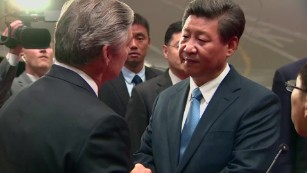
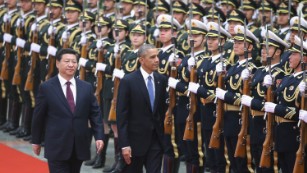












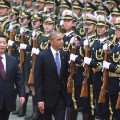
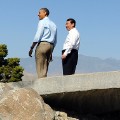
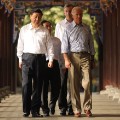
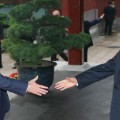
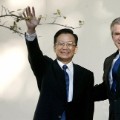
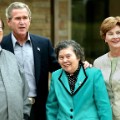
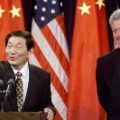
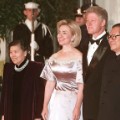
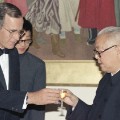
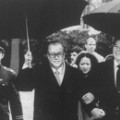
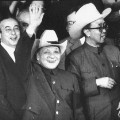
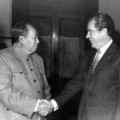
No comments:
Post a Comment
Comments always welcome!